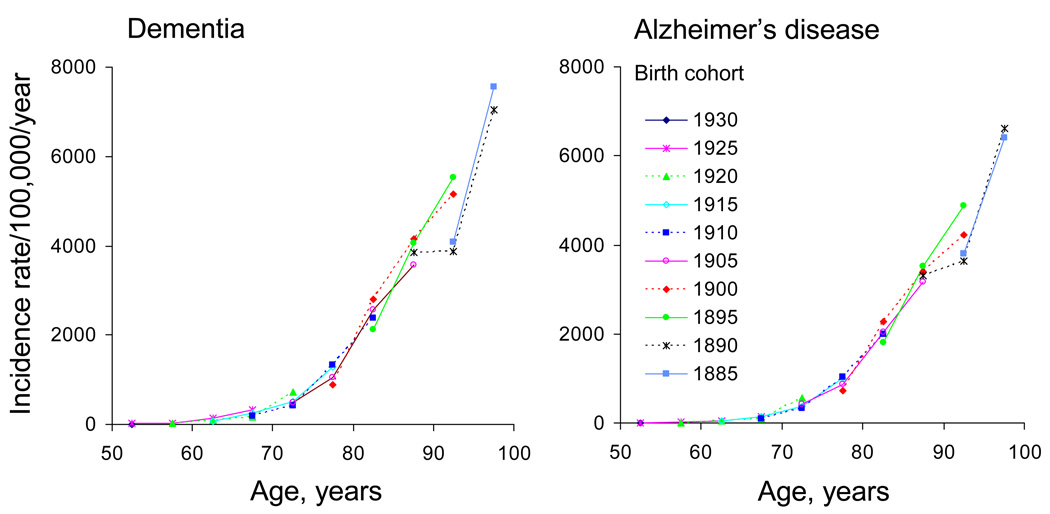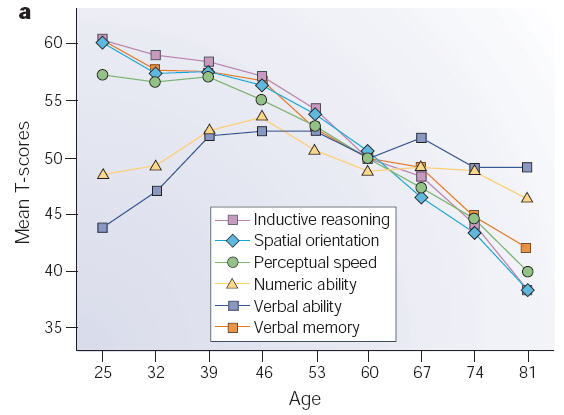Cognitive Changes With Aging
How could it be that some 78 year olds can recall memories from their twenties while others cannot remember their grandchild's name? There is ample evidence that alterations in brain structure and function are intimately tied to alterations in cognitive function. In order to understand aging-related cognitive decline it is important to study the relationship between the brain and cognition. This section will provide an overview of cognitive functions of the brain and discuss cognitive decline.
Incidence rates of dementia and Alzheimer's disease in the US

Source: Rocca WA, Petersen RC, et al.: Trends in the incidence and prevalence of Alzheimer's disease, dementia, and cognitive impairment in the United States. Alzheimer Dement. 2011;7(1):80-93.
Many older adults complain of increased memory lapses as they age, and a major focus of research has been to try to distinguish memory declines attributable to normal aging from those that are indicative of premature, accelerated aging, particularly Alzheimer's disease.
Basic Cognitive Functions
 |
Roll over the tabs to see the different aspects of basic cognitive function. | |
|
||
Higher Cognitive Functions
 |
Roll over the tabs to see the different aspects of higher cognitive function. | |
|
||
Individual Variability in Cognitive Function
 Cognitive decline is inevitable, but the extent to which it occurs and the rapidity of onset varies among individuals. There is much evidence that cognitive decline is neither uniform among people, nor is it uniform across the different cognitive functions of the brain. In other words, some 60 years olds experience worse memory loss than other 70 year olds, and one person may have excellent episodic memory but impaired executive control. This inter-individual variability is likely caused by biological, psychological, health-related, environmental, and lifestyle factors and mechanisms.
Cognitive decline is inevitable, but the extent to which it occurs and the rapidity of onset varies among individuals. There is much evidence that cognitive decline is neither uniform among people, nor is it uniform across the different cognitive functions of the brain. In other words, some 60 years olds experience worse memory loss than other 70 year olds, and one person may have excellent episodic memory but impaired executive control. This inter-individual variability is likely caused by biological, psychological, health-related, environmental, and lifestyle factors and mechanisms.
In general, however, the symptoms of cognitive decline that are associated with aging include:
- Slower inductive reasoning / slower problem solving
- Diminished spatial orientation
- Declines in perceptual speed
- Decreased numeric ability
- Losses in verbal memory
- Few changes in verbal ability
The graph on the right demonstrates how these functions decline with age. Note that there are almost no changes in verbal ability and they may even have improved with age. On the other hand, spatial orientation suffers a severe drop with age.


